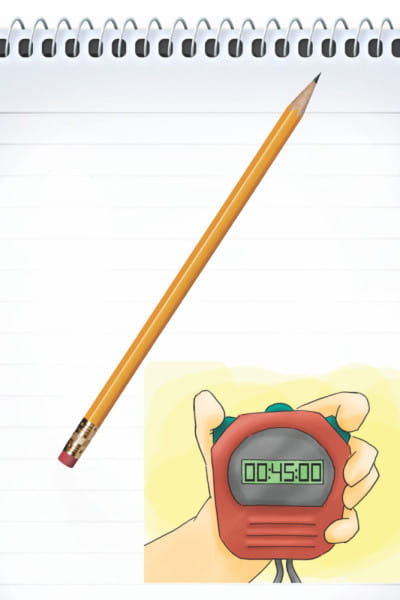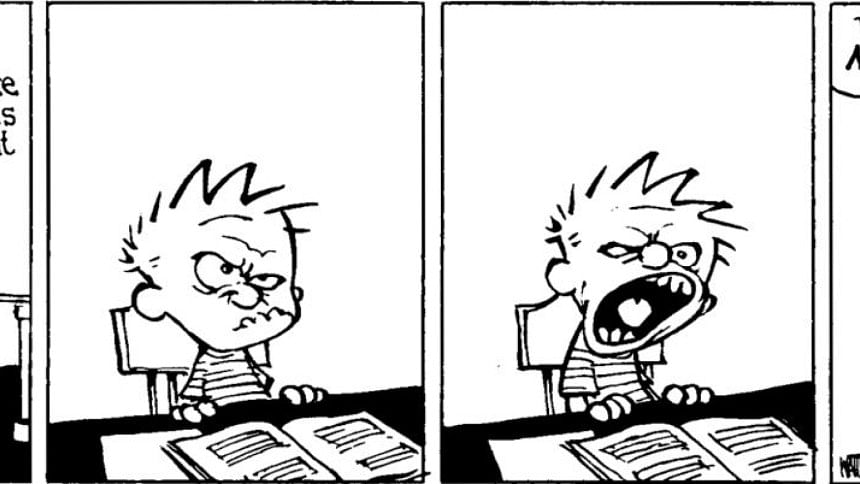Study Methods backed by Science

Ever been in a state where despite studying for hours for an exam, the moment you open the exam paper, your mind goes entirely blank? You're not alone. Going over the same text repeatedly does contribute to an increased score. Research has shown that it isn't about the number of hours you invest in studying a topic, but rather about how you approach it. So, what should you be doing then? Below are seven methods which have been backed by experimental data to help you study better.
Use Mnemonics
The application of mnemonics is one of the most effective memory tools around – widely used to recall facts, bits of information, and aid memorisation. The idea is to take a piece of information and relating it to something you know and easily remember. For example, ROY G. BIV is used to remember the sequence of colours in the visual spectrum or the alphabet song is used to recall the letters of the alphabet. However, the most effective ones are the ones you make up on your own. If you are having a hard time trying to get yourself to recall a piece of information, try making an association with your favourite team/player or likewise. Regardless of how silly it may sound, it'll work.
Write it down
Although a majority of us prefer to type down the notes as it's neater or simply highlight parts from the books as writing can admittedly be time consuming, writing things down has been proven to be more effective at facilitating memory formation. While writing, a person actively engages with the information, whereas in case of reading or typing material one may or may not be employing their full focus. So after reading through a page it's recommended to summarise it into written notes and instead of typing out the notes in your class, you should actually write it down.

Teach someone else
When you're explaining a concept to a friend or a peer, your brain breaks down the information into organised steps and arranges it in such a way that it'd be easier for the other person to grasp. This, in turn, allows you to know the content inside out and retain it in your memory. Moreover, when you're questioned by another person, it helps to identify the gaps in your own knowledge so that you can focus particularly on those sections later on. In addition, getting a good rep among your peers is always an advantage.
Break it down
Studying for 4 to 5 hours straight and pulling off all-nighters actually have a detrimental effect on your memory. Rather, divide your revision into small manageable chunks consisting of 30 to 45 minutes, with 5 to 10 minutes of breaks in between. This is because, just like a computer, after a period of time, your brain finds it harder to focus and works less efficiently due to an overload of information. The breaks provide your brain with an interval to let the information sink in. Moreover, what you do during the pauses can correspondingly have an effect. Advisable things to do would be to have a snack or go for walk while listening to music as these assist the brain in making it more active.
Take practice tests
Tests are considered to be the pests in the realm of learning and education, but they do help to reinforce a piece of information unlike any other. It renders you with more confidence regarding a topic; thus, you're more likely to do well in the exam and less likely to be a victim of exam anxiety. Furthermore, taking practice tests and mocks help to pinpoint the areas you chiefly struggle with, allowing you to better determine the topics you should devote more of your time to.
Form pictorial reminders
It has been noted that our brains are better at remembering images than text. Thus, while reading something it is instructed to visualise the entire process or make image references which can significantly aid fact retention. Watching animations and using mind maps work wonders in case of subjects particularly heavy with concepts and processes such as the sciences.
These are the study habits that have been correlated with better grades. Yet, it's imperative to bear in mind that not all of these will produce results for everyone. What's important is to find what works best for you and sticking to it.
Khadiza Karim Chowdhury is a part time science junkie and a part time sports enthusiast who anxiously swings from one to another and never walks alone, occasionally transitions into a Panda or a Cat. Hear her ramblings at [email protected]

 For all latest news, follow The Daily Star's Google News channel.
For all latest news, follow The Daily Star's Google News channel. 



Comments